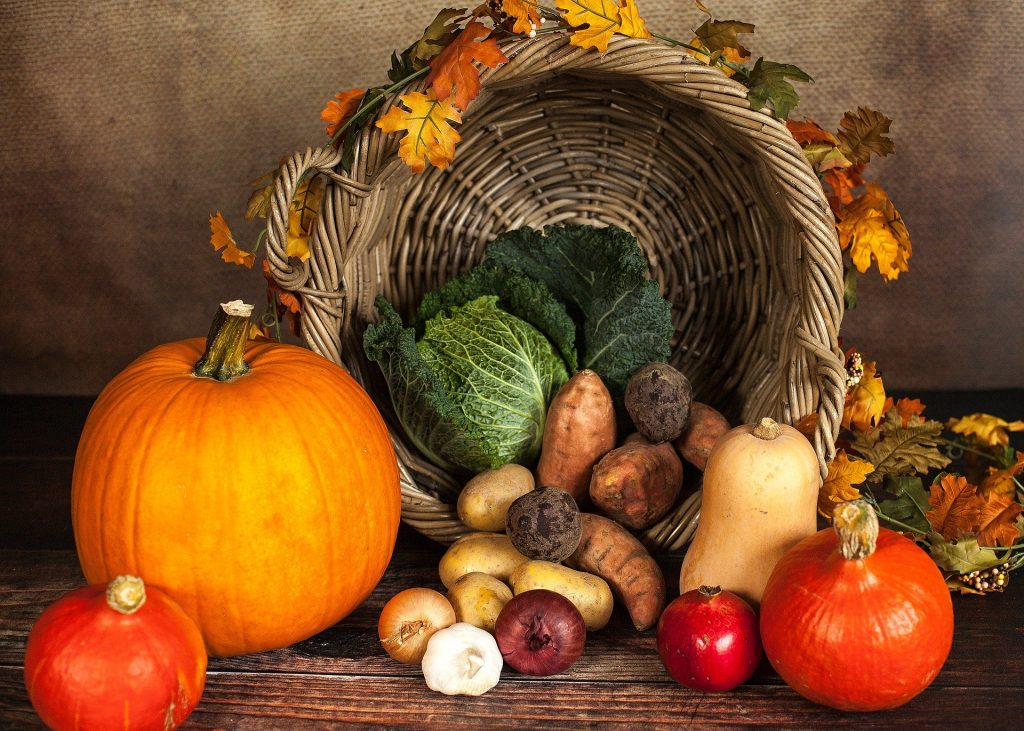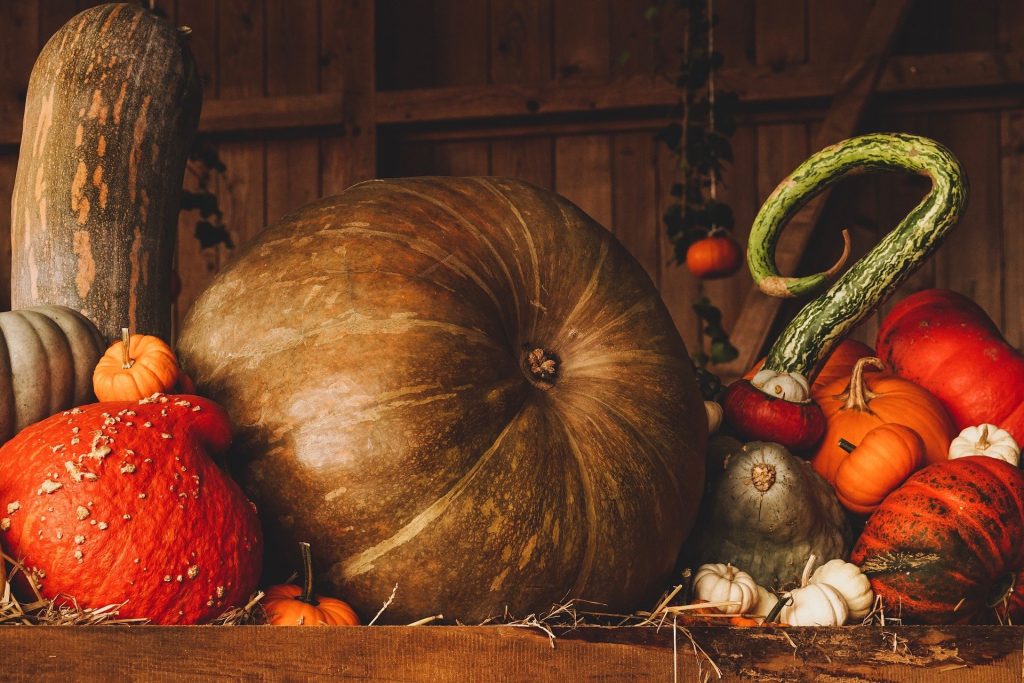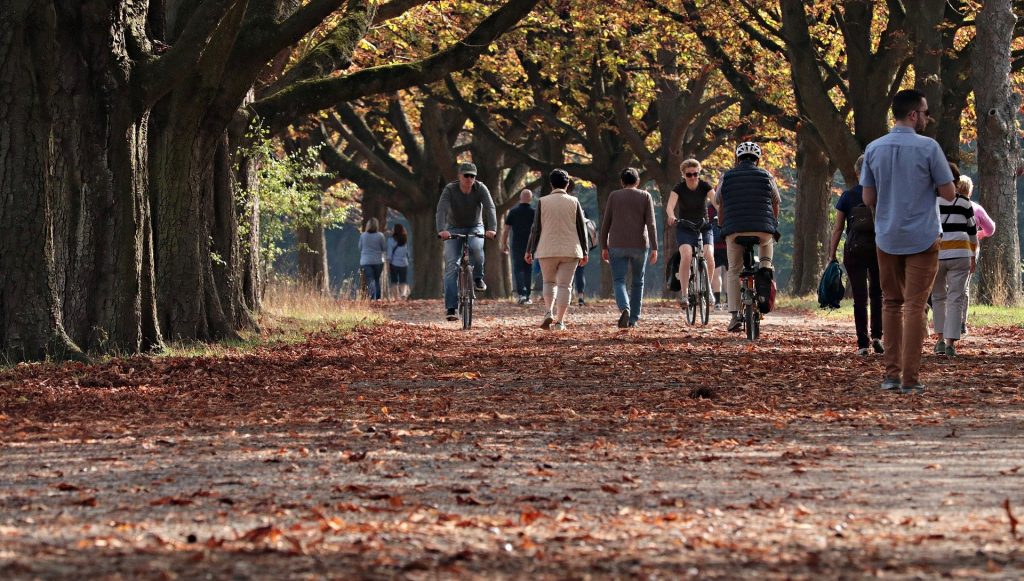Adjusting to the changing season
Autumn is here, and despite the lovely weather still brightening the day, I can already feel the change and the exponential decrease in sunlight that comes with the darker side of the year, here in the northern hemisphere.
Our body, wether we perceive it or not, is quite sensible to the seasonal changes and there are a few things that is worth taking into account when planning and therefore nailing your autumn healthy diet.
To better serve our body, we should focus on eating seasonal fruit and vegetables, ideally produced locally, and even better if without pesticides or poisons.
In this season we should focus on apples, blackberries, butternut squash, Brussels sprouts and cabbages, cauliflowers, celery, kale, leeks and onions, parsnips, pears, potatoes, pumpkins, purple sprouting broccoli, spinach, turnip, carrots. (If you must for any reason eat non seasonal products, ideally buy them frozen, as they tend to preserve at best their nutritional values).

This is the time for butternut squash and porcini mushroom risotto, for the pumpkins cooked in every possible way, for glorious soups of leeks and potatoes, rich stews with hearty vegetables, tasty desserts with apples and berries.
But aside the lovely seasonal mood, there might be some additional nutritional requirements that need to be addressed to cater properly for our wellbeing. Let’s find out a few things to take into account!
The changes that affect us
From today, the Autumn equinox, the daylight is decreasing exponentially, affecting our body’s circadian rhythms, regulated by the day/night alternation, and so we begin to have different needs.
Although our life might seem too modern and efficient to be affected by such changes, given the access to electricity that enable us to carry on with our tasks despite the light condition, we are indeed linked to natural factors that are part of us. Like animals and plants, we need sunlight to live, and like them we adjust to its changes in the way that is more suitable for our survival.
Understanding how these changes affect us is the key to maintain our wellbeing and look after ourselves, so that we can thrive through the changing season, whatever the weather, and whatever life throws at us.

Lack of daylight: Mood swings and SAD
With the days shortening, one thing that can easily be affected is our mood.
Seasonal Affective Disorder, or SAD, is a type of the depression linked to the changes in season, with symptoms typically appearing in fall and lasting throughout winter. The symptoms then improve and disappear in Spring and summer. It lowers sensibly your energy levels and makes you feel moody, and can affect your sleeping pattern, and induce some difficulty in concentrating.
This might be due to several factors like the already mentioned change in our circadian rhythm, or our biological clock if you prefer, the decrease in serotonin, the neurotransmitter that affects mood, all as a result of the decreased sunlight. And then a drop in our melatonin levels, triggered by the change of season, affects our seeping pattern and mood too. The lack of sunlight, might result in a vitamin D deficiency, with bad effects on our mood. Check this article, if you want to know more about it.
What you can do:
Expose yourself as much as possible to sunlight! From October to March take an integration of Vitamin D, and ensure you take some additional precautions if the symptoms do not seem to improve. Herbs like passionflowers, valeriana officinalis, and St. John’s wort might be very helpful. Taken consistently, in infusion or in tablets, they help relieve the symptoms, and improving our mood.
Then remember to take care of your gut: it influences your immune system and your mood and feeling of wellbeing, eat kefir or bio live yoghurt daily to take care of your gut!
(As a reminder this apply to mild symptoms: if the symptoms are more severe you should contact your doctor, that will suggest if psychotherapy and or medication might be needed.)

Different climate: where the food gets into play
Stomach problems worsened in seasonal changes, due to both the different food that we eat, and the type of food our body actually needs!
Some people might tend to gain weight because our body enters an energy saving mode, triggered by the colder season and on an ancestral memory of food scarcity approaching. The problem arises if we go through it with an abundance of food that would require a very different set of activities than the ones our overheated and comfortable winter lifestyle contemplates.
Problems like heartburn, reflux, IBS and other digestive diseases tend to worsen in Autumn and Spring, appearing sometimes with unexpectedly strong symptoms, affecting our quality of life and general wellbeing.
What you can do:
Limit or avoid the consumption of acid foods like tomatoes, citrusy fruits, spices, coffee, mint, chocolate and fatty acids in general. Modify temporarily your diet to minimise your symptoms and get over this phase. Create a list of seasonal fruit and vegetables, and cross reference it with one of the foods that worsen your condition, to create a good balanced diet plan. Remember that to create the perfect plan, it has to be perfect for YOU, so ensure that you tailor it on your preferences and/or intolerances, and on the specific reaction of your body to a specific food.
Mint is well known for its bad effect on reflux, as you saw in the list above, but for me mint infusion has always been a very helpful way to relieve the symptoms. Hence, your knowledge of yourself is the most powerful ally in building out a plan that works for you!

Lack of outdoor time and brain balance
This may affect our energy levels, and lower our brain performance. The outside/inside time ratio is heavily affected, as we approach the colder weather, the limited amount of daylight is at its peak when we are most busy with our work routine. This limits our freedom during night hours, when being outside has definitely lost its appeal.
Therefore, we are less exposed to the natural world: too much time indoors reduces exposure of the eye and skin to Full Spectrum Sunlight. This alters important hormone and sulphate production. Our brain actually requires sulphates to clear itself of debris and toxins.
What you can do:
Use your lunch break to be outside. Avoid to sit behind the screen while eating, and if the weather allows, take your lunch outside and eat it in the daylight. Expose the naked eye and as much skin as is possible, and decent, to the morning light, ideally sunlight, to help regulate the production of hormones and sulphate. If your lunch situation requires you to be inside, then eat, and go outside soon after, possibly have a walk in nature as it has a calming and grounding effect for on our body, promoting anti-inflammatory processes.
Add foods that contains tryptophan to your diet to balance your brain activity and boost serotonin production: eggs, cheese, tofu, salmon, nuts and seeds, ensuring you eat them with healthy carbohydrates, like, rice, oatmeal, wholegrain cereals or bread.
I hope you found this helpful, and are ready to nail your healthy diet plan straight on! Let me know in the comment if you are giving it a go.
Images Credits
Main Image- Image by Valiphotos from Pixabay
1- Image by Sabrina Ripke from Pixabay
2- Image by Peggychoucair from Pixabay
3- Image by suju-foto from Pixabay
4- Image by S. Hermann & F. Richter from Pixabay